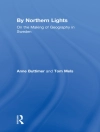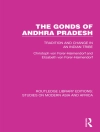An estimated 350 to 600 million indigenous people reside across the globe. Numerous governments fail to recognize its indigenous peoples living within their borders. It was not until the latter part of the twentieth century that the genocide of indigenous peoples became a major focus of human rights activists, non-governmental organizations, international development and finance institutions such as the United Nations and the World Bank, and indigenous and other community-based organizations. Scholars and activists began paying greater attention to the struggles between Fourth World peoples and First, Second, and Third World states because of illegal actions of nation-states against indigenous peoples, indigenous groups’ passive and active resistance to top-down development, and concerns about the impacts of transnational forces including what is now known as globalization. This volume offers a clear message for genocide scholars and others concerned with crimes against humanity and genocide: much greater attention must be paid to the plight of all peoples, indigenous and otherwise, no matter how small in scale, how little-known, how "invisible" or hidden from view.
Robert Hitchcock
Genocide of Indigenous Peoples [PDF ebook]
A Critical Bibliographic Review
Genocide of Indigenous Peoples [PDF ebook]
A Critical Bibliographic Review
Achetez cet ebook et obtenez-en 1 de plus GRATUITEMENT !
Langue Anglais ● Format PDF ● Pages 307 ● ISBN 9781351517751 ● Éditeur Robert Hitchcock ● Maison d’édition Taylor and Francis ● Publié 2017 ● Téléchargeable 3 fois ● Devise EUR ● ID 5323930 ● Protection contre la copie Adobe DRM
Nécessite un lecteur de livre électronique compatible DRM












